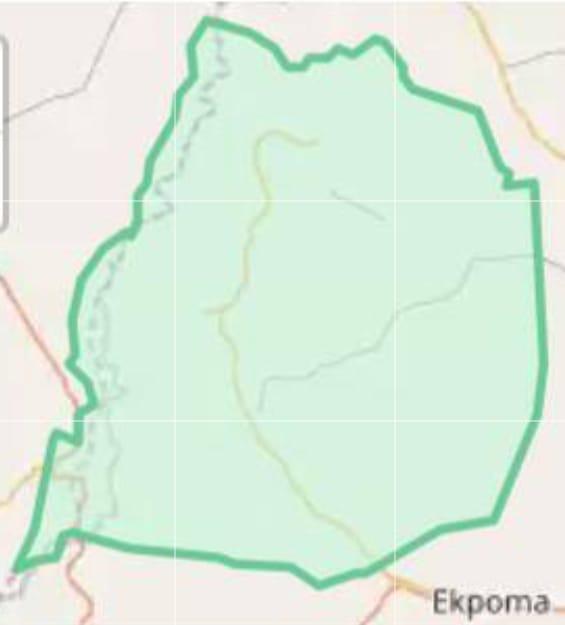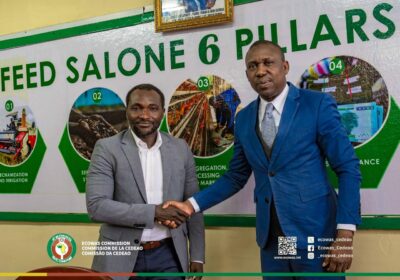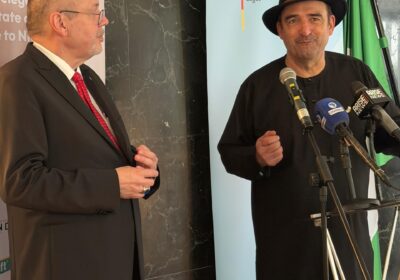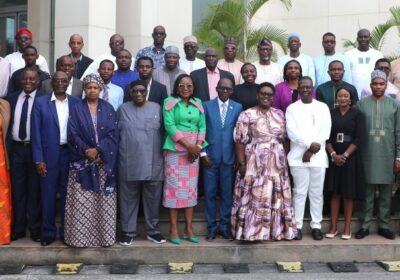OWAN NATION DEVELOPMENT AGENDA
By Hon.Comrade Fred Enaikhe Alegburu
Knowing a destination without understanding how to get there is as absurd as expecting to have a baby without first getting pregnant. This was the words of Hon. Comrade Fred Enaikhe Aleburu, as he highlights the importance of having a clear, actionable plan before expecting results, especially in the context of community development for OWAN Nation Comrade Aleburu’s emphasized the need for the Owan nation to develop a concrete agenda to present to gubernatorial candidates, ensuring that the region’s needs are addressed and not ignored.
THE STATE OF OWAN NATION:
The Owan nation, a region within Nigeria, is characterized by underserved and impoverished communities, particularly in its rural areas. This reality underscores the urgency for a structured development agenda. Without such a plan, expecting meaningful development is unrealistic. The analogy of expecting a baby without pregnancy underscores the impracticality of achieving goals without laying the necessary groundwork.

The rural communities within Owan nation suffer from a lack of basic infrastructure, education, healthcare, and economic opportunities. These deficiencies perpetuate a cycle of poverty and underdevelopment. Addressing these issues requires more than mere promises; it necessitates a strategic, actionable plan that can be implemented and monitored.
THE NECESSITY OF AN OWAN DEVELOPMENT AGENDA:
Development cannot occur in a vacuum. For the Owan nation to progress, there must be a comprehensive development agenda that outlines specific goals, strategies, and metrics for success. This agenda should cover critical areas such as infrastructure development, healthcare improvement, educational advancement, and economic growth.
1. *Infrastructure Development*: A key component of the development agenda should be the improvement of infrastructure. This includes roads, bridges, water supply, and electricity(includes mini grids). Better infrastructure facilitates economic activities, improves access to services, and enhances the overall quality of life for residents.
2. *Healthcare Improvement*: The health of a population is crucial for its development. The agenda should include plans to build and equip healthcare facilities, train medical personnel, and ensure the availability of essential medicines. Preventive healthcare measures and health education should also be part of the plan to address the root causes of health issues.
3. *Educational Advancement*: Education is the foundation of development. The agenda must prioritize building schools, training teachers, and providing learning materials. Special focus should be on girl-child education and vocational training to empower the youth with skills that can lead to employment or entrepreneurship.
4. *Economic Growth*: Economic development strategies should focus on agriculture, which is the mainstay of the region, and diversification into other sectors like manufacturing and services. Support for small and medium-sized enterprises (SMEs) through access to finance, markets, and capacity-building programs is essential.
FROM AGENDA TO MEMORANDUM OF AGREEMENT- MOA:
Aleburu’s advocacy goes beyond merely presenting an agenda; he proposes that this agenda be formalized into a Memorandum of Agreement (MOA) to be signed by all gubernatorial candidates. This step ensures accountability and commitment from political leaders. By signing an MOA, candidates publicly commit to implementing the development agenda, providing a mechanism for holding them accountable if they fail to deliver.
ENSURING ACCOUNTABILITY:
The MOA should include clear, measurable targets and timelines for each aspect of the development agenda. It should also outline the roles and responsibilities of the government, private sector, and civil society in achieving these targets. Regular monitoring and evaluation should be built into the agreement to track progress and make adjustments as needed.
BUILDING CONSENSUS:
Creating a development agenda and MOA requires broad-based consensus. This means engaging with various stakeholders, including community leaders, business owners, youth representatives, and women’s groups, to ensure that the agenda reflects the diverse needs and aspirations of the Owan people. Such an inclusive approach fosters ownership and collective responsibility for the development process.
POLITICAL WILL AND COMMUNITY INVOLVEMENT:
Political will is crucial for the success of any development agenda. The MOA helps in securing this by making development commitments part of the electoral mandate. However, political will must be complemented by active community involvement. Communities must be mobilized to participate in development initiatives, provide feedback, and hold leaders accountable.
THE TIME IS NOW
Aleburu’s call to action is timely. The Owan nation cannot afford to wait any longer. Developing and implementing a comprehensive development agenda is critical to breaking the cycle of poverty and underdevelopment. By taking proactive steps now, the Owan nation can create a brighter future for its people.
OVERCOMING CHALLENGES:
While the task ahead is daunting, it is not insurmountable. Challenges such as limited resources, bureaucratic hurdles, and political resistance can be addressed through innovative solutions, partnerships, and persistent advocacy. Leveraging technology, fostering public-private partnerships, and seeking support from international development agencies can provide the necessary impetus for progress.
CELEBRATING SUCCESSES:
As the Owan Nation embarks on this development journey, it is important to celebrate milestones and successes along the way. Success stories from other local government areas and States can serve as inspiration and provide valuable lessons. Recognizing and rewarding efforts that contribute to the development agenda can motivate more people to get involved and sustain momentum.
CONCLUSION:
In conclusion, Hon. Comrade Fred Enaikhe Aleburu’s advocacy for a structured development agenda for the Owan nation is both practical and necessary. Without a clear plan and commitment from political leaders, expecting development is as futile as expecting a baby without pregnancy. The creation of a comprehensive development agenda, formalized through a Memorandum of Agreement, can pave the way for meaningful progress in the Owan nation.
We must put away all forms of benyekenism and personal ilalobo system; rather we should advocate for an Owan Nation development agenda that brings ilalobo to all Owan Nation citizens.The time to act is now, and the collective efforts of all stakeholders are crucial to achieving sustainable development and improving the lives of the Owan people








